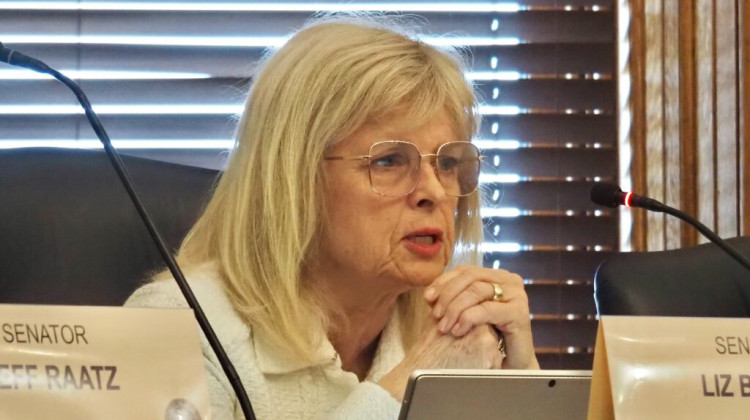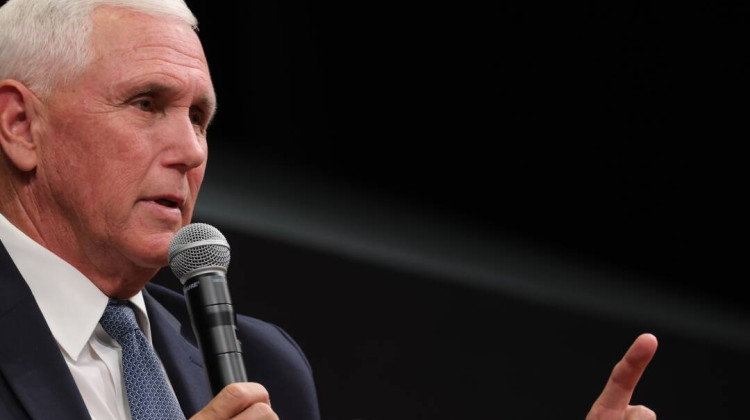
An aerial view of Fulcrum BioEnergy's Sierra BioFuels Plant in Storey County, Nevada.
(Courtesy of Google Maps)The Gary Common Council recently voted to approve an industrial plant that converts trash into jet fuel. If built, it would be the largest such facility in the country.
Flyn van Ewijk is the developer for the project for Fulcrum BioEnergy. He said the plant would create 130 full-time jobs and about 1,000 in construction. Ewijk said it’s also a greener kind of jet fuel that would divert 700,000 tons of waste a year from the greater Chicago area.
“It's a fuel that reduces [jet] emissions by over 80 percent compared to traditional fuels — or fossil based fuel — and in the process diverts a significant amount of waste from landfills, including in northwest Indiana," he said.
But some Gary residents have concerns about pollution from the plant. Kimmie Gordon is the founder of the nonprofit Brown Faces Green Spaces and part of a new group that formed in opposition called GARD — or Gary Advocates for Responsible Development.
Fulcrum’s only other plant near Reno, Nevada, hasn’t yet produced its first batch of fuel. Gordon said that makes it hard to say how much pollution comes out of Fulcrum’s process and what effect it would have on residents in Gary.
“When we ask those questions, they're unable to tell us simply because their plant in Reno is not operating yet," she said.
Lori Latham is the environmental and climate justice committee chair for the Gary branch of the NAACP. She said Gary has long been a "dumping ground" for industry and that putting the Fulcrum plant there would continue that legacy of pollution.
“I have a hard time seeing how the city can move forward and access the asset that our lakefront is by, you know, locating solid waste dumps there," Latham said.
Join the conversation and sign up for the Indiana Two-Way. Text "Indiana" to 73224. Your comments and questions in response to our weekly text help us find the answers you need on statewide issues.
Gordon said the land where the Fulcrum facility would be located — contaminated by a former cement plant — still hasn't been cleaned up. She said she would like to see Gary focus less on industrial development and more on the quality of life of people living there.
Ewijk said the trash itself wouldn't sit at the Gary facility, but would be trucked into the biorefinery from two other locations — one in Illinois and another in northwest Indiana, likely somewhere along the Interstate 65 corridor.
He said the company uses proven technology and will hold sessions with the public to help address residents’ concerns and update them on the Nevada plant.
The Indiana Department of Environmental Management still has to approve the company’s permit. The project was first proposed back in 2018.
Contact reporter Rebecca at rthiele@iu.edu or follow her on Twitter at @beckythiele.
Indiana Environmental reporting is supported by the Environmental Resilience Institute, an Indiana University Grand Challenge project developing Indiana-specific projections and informed responses to problems of environmental change.
 DONATE
DONATE







 Support WFYI. We can't do it without you.
Support WFYI. We can't do it without you.